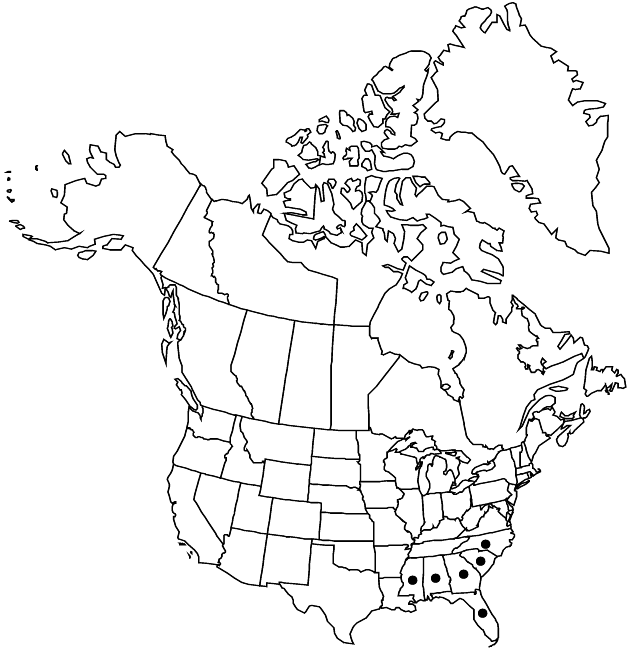Baccharis glomeruliflora
Syn. Pl. 2: 423. 1807.
Shrubs, 100–300 cm (evergreen, loosely branched). Stems erect to ascending, striate-angled, glabrous or minutely scurfy, not resinous. Leaves present at flowering (not in fascicles); petioles to 7 mm; blades obovate or elliptic to rhombic, 20–60 × 8–40 mm, leathery, bases cuneate to attenuate, margins serrate (teeth 1–3 per side distal to middles, relatively broad), apices acute, faces glabrous, abaxial black gland-dotted (distal reduced, entire), adaxial eglandular. Heads (1–4, sessile or subsessile) in axillary glomerules scattered along branches. Involucres campanulate to obconic; staminate 4–5 mm, pistillate 5–6 mm. Phyllaries ovate to lanceolate, 1–4 mm, margins scarious, medians green, apices rounded or obtuse (sometimes purplish). Staminate florets 20–30; corollas 4–5 mm. Pistillate florets 15–25; corollas 3–4 mm. Cypselae 1.5–2 mm, 8–10-nerved, glabrous; pappi 8–9 mm.
Phenology: Flowering Oct–Nov.
Habitat: Hammocks, moist woods, pine woods, swamps, swales, stream banks, ditches of inner dunes
Elevation: 0–100 m
Distribution

Ala., Fla., Ga., Miss., N.C., S.C.
Discussion
Found primarily on the Coastal Plain, Baccharis glomeruliflora is recognized by the evergreen leathery leaves with broad teeth, and the small axillary glomerules of heads.
Selected References
None.